South Africa’s Wine Legends: David Hughes
“I was born on a gold mine,” says wine industry stalwart, David Hughes. The late afternoon sun slides through the blinds of his home study, lighting up the occasional mote of dust as well as the gilded lettering on books in the shelves. Dave has worn many hats throughout his long career—from being a distiller, winemaker, wine auctioneer, international wine and spirit judge to being the founder of the Cape Wine Academy and author of many wine and spirit books.
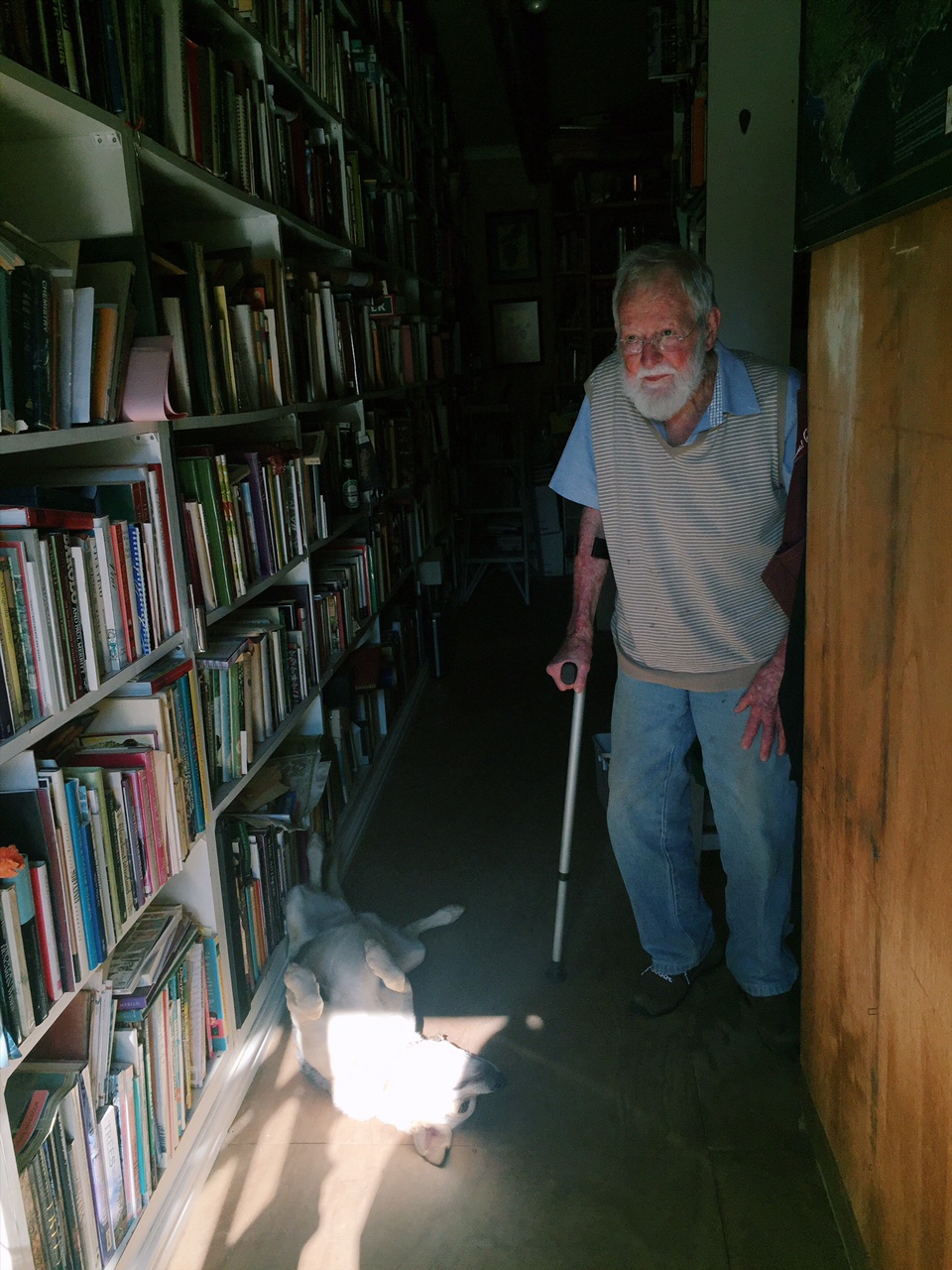
The din of barking dogs—prompted by my arrival—has died down, and the tranquillity of the Stellenbosch’s Devon Valley takes hold instead. There is of course the occasional yap, or an under-the-breath growl from one of the many, many dogs (around 12). I can’t really keep track—it’s much like arriving at a party and being introduced to everyone at once. The three that remain with us in the room are Taxi (named so as he’s bad at directions), Lucky (to be alive after surviving a fire), and Bristle, the oldest, and I guess, the bristliest of the lot—who is also the most famous with a wine brand named after him. Bristle Wines, are the domain of Dave’s wife Lorna Hughes (the pair have been married for 15 years). Though these days Lorna no longer runs the wine company, she focuses solely on her work as GM at The Animal Welfare Society of Stellenbosch. Apparently there are a few cats somewhere around here too.
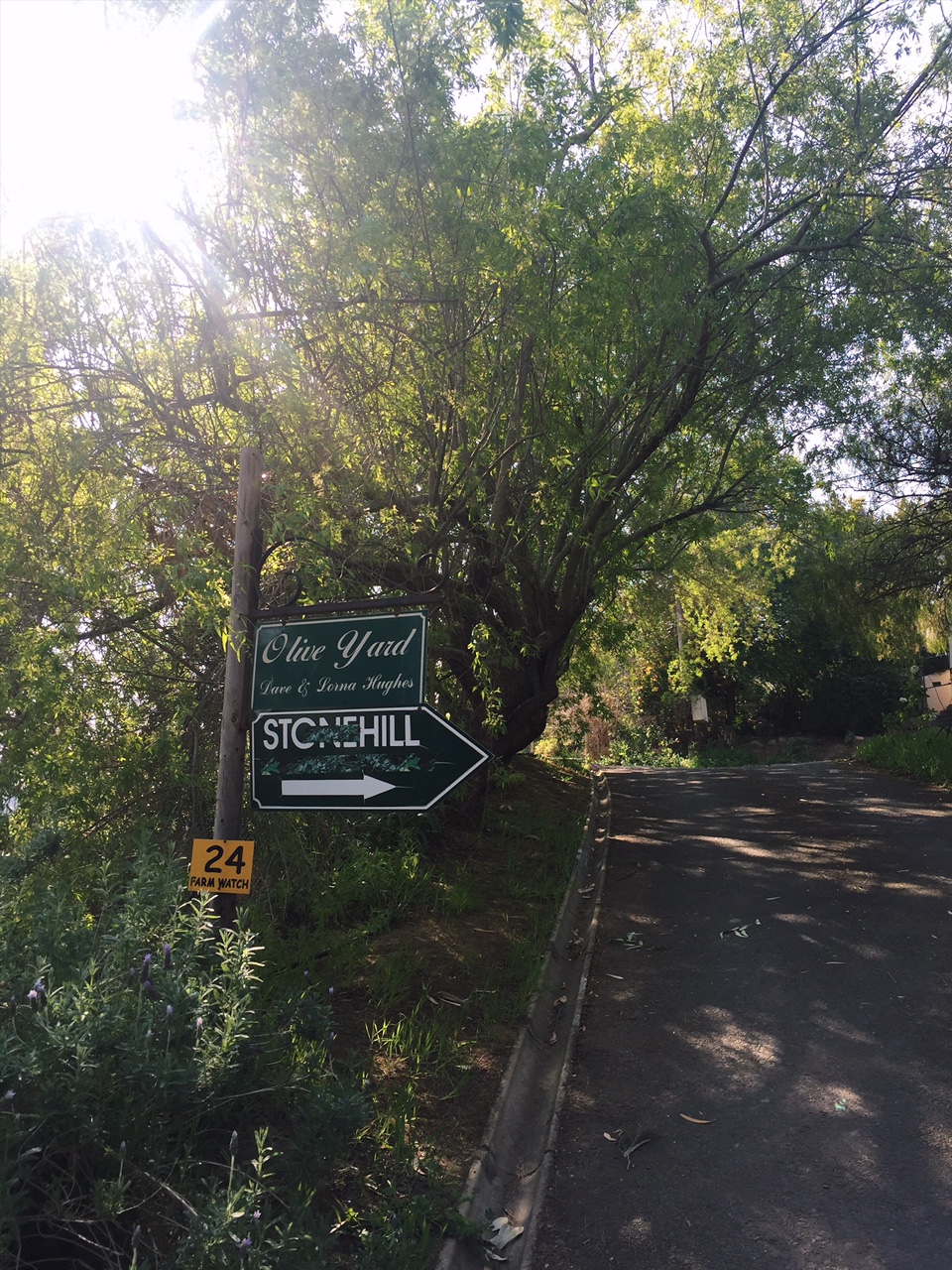
But back to that goldmine. Dave was born in 1938 in Gatoomadistrict, which was in then Rhodesia (now Zimbabwe), on the border of Mozambique in a house that was built nearby a goldmine. “My dad at the time had a general trading store. But after he got injured in World War II, he spent the rest of his life in creative pursuits, painting and the like.” His admiration for his dad is clear. “He was a linguist, he could speak any language. At one stage he even was a cowboy in the circus, cracking whips and lassos. One of his last jobs was to paint the background scenes for the dioramas in the Natural History Museum in Bulawayo.
“Sadly neither my brother [who was seven years older] nor I inherited any of his many talents.” Not even Dave knew where his own path would lead.
“I had no intention of ever getting involved with winemaking.” The plan was first geology. But that got interrupted when he was called up to join the military. He then decided to join the permanently. He was given a couple of week’s leave before he was due to head overseas for training. “My dad said ‘you can’t just sit around’.” That led to a part-time job at a distillery (Africa Distillers) in Umthali.
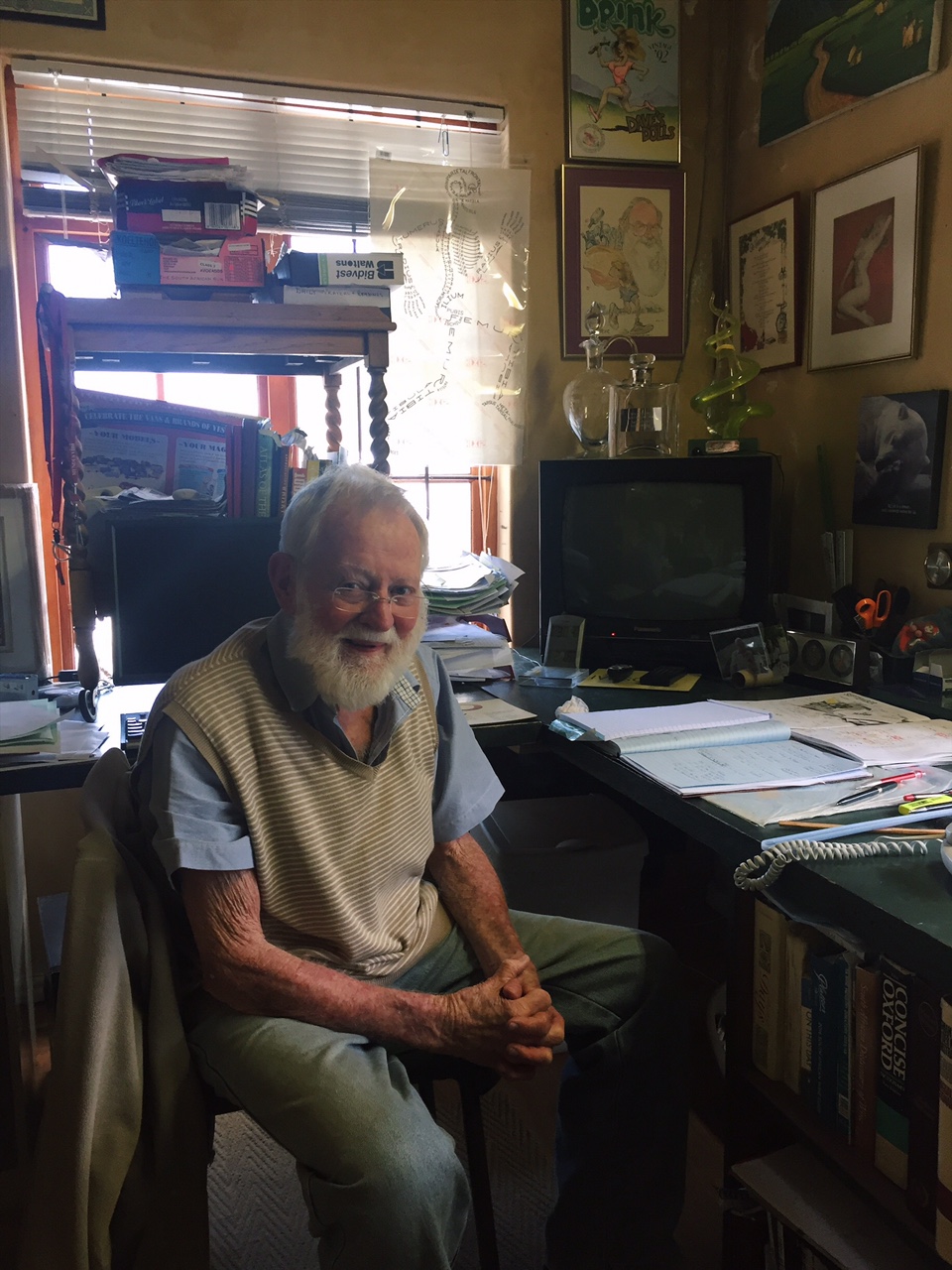
“That changed my life. I became an apprentice distiller—and my dad had to buy me out of the army.” What followed was an intense, and spirited, education that saw him travelling the world at the behest of his new boss, working in distilleries all over the U.K, including a vintage in Champagne.
Just like he was never planning to get into the wine industry, he also never planned to move to South Africa. A series of unfortunate events, coupled with some fortunate opportunities, saw him weighing up his life plans. He moved to South Africa in 1968 with his first wife and daughter. He then embarked on a long—and important for the industry at large—career at Stellenbosch Farmers Winery or SFW (now Distell). He moved around the company in many positions and provinces. Possibly his largest contribution in his tenure was being a part of the operation that saw the mind-boggling growth of a semi-sweet table wine, Lieberstein. In 1964, 31-million litres of Lieberstein were sold. “It was the biggest selling bottled wine in the world.” Lieberstein says David was the catalyst that kicked the South African wine industry into the next era of development.
And the wine industry needed some help. Dave believes his biggest contribution to the industry he loves, was teaching. He instilled tasting courses at South Africa’s winemaker nursery, Elsenburg, ‘they knew how to make wine, but not how to taste and judge it!” Then in 1979 he founded the Cape Wine Academy and appointed Phyllis Hands as the first principal. The academy of course has been a runaway success story; as well as another catalyst that defined how South Africa appreciates and makes its wines. They’ve just crowned the 100th Cape Wine Master this year (2017).
At some point he went freelance, and continued to churn out wine guides, wine books and judge at competitions locally and abroad. Tasting, teaching and travelling.
His study is rammed with totems of his eventful life. From vineyard rock samples, an antique toy car collection, a framed poster of Marilyn Monroe from her Playboy debut, a few caricatures of him adorn the walls along with all kinds of awards dedicated to him, drawings, a ceramic nose covered in signatures; to the shelves and shelves piled high with books, his own, and collected. In fact for his latest project he’s currently compiling a collection of books dedicated to wine, geography and spirits that will eventually make up a library for the winelands.
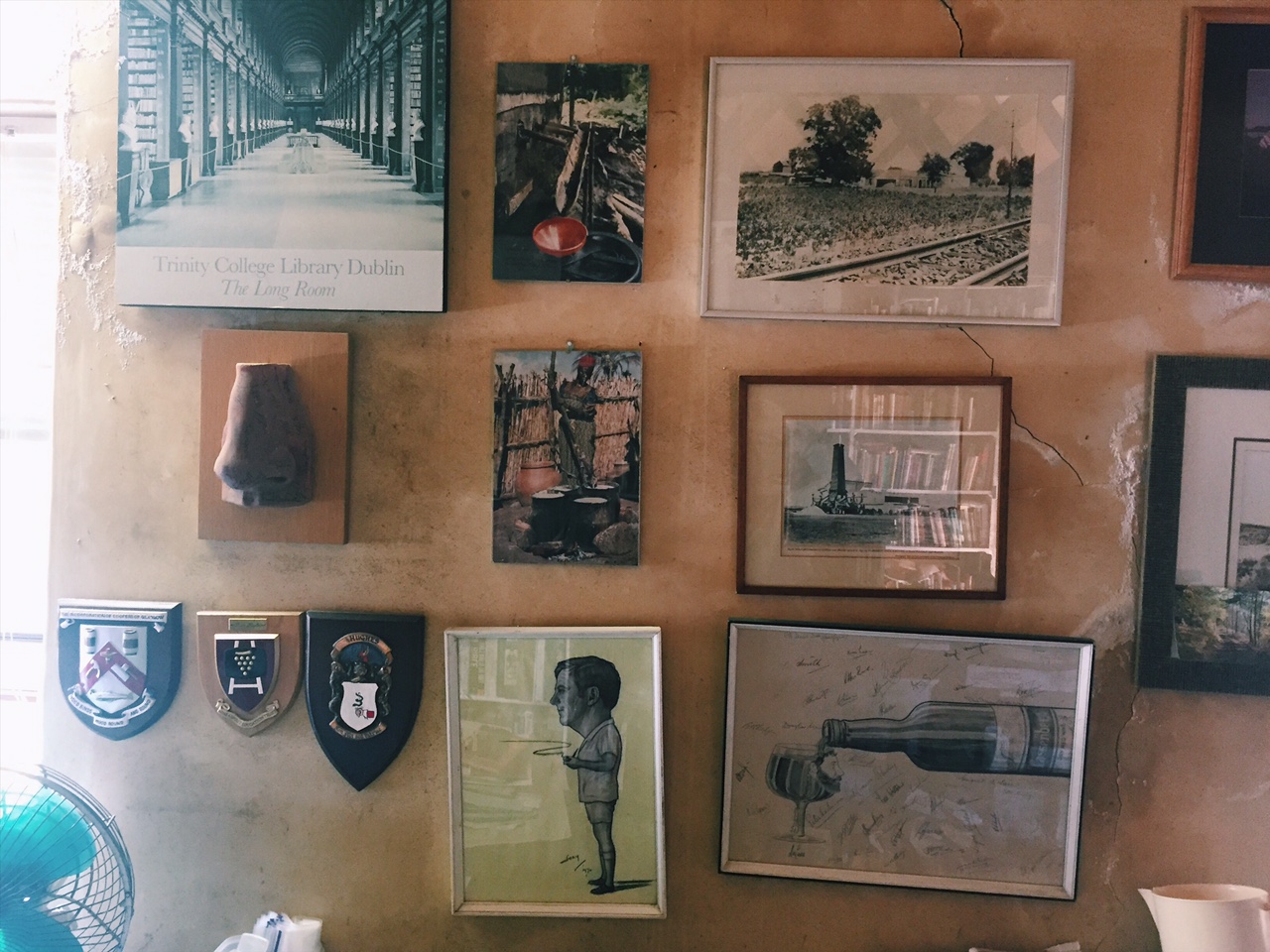
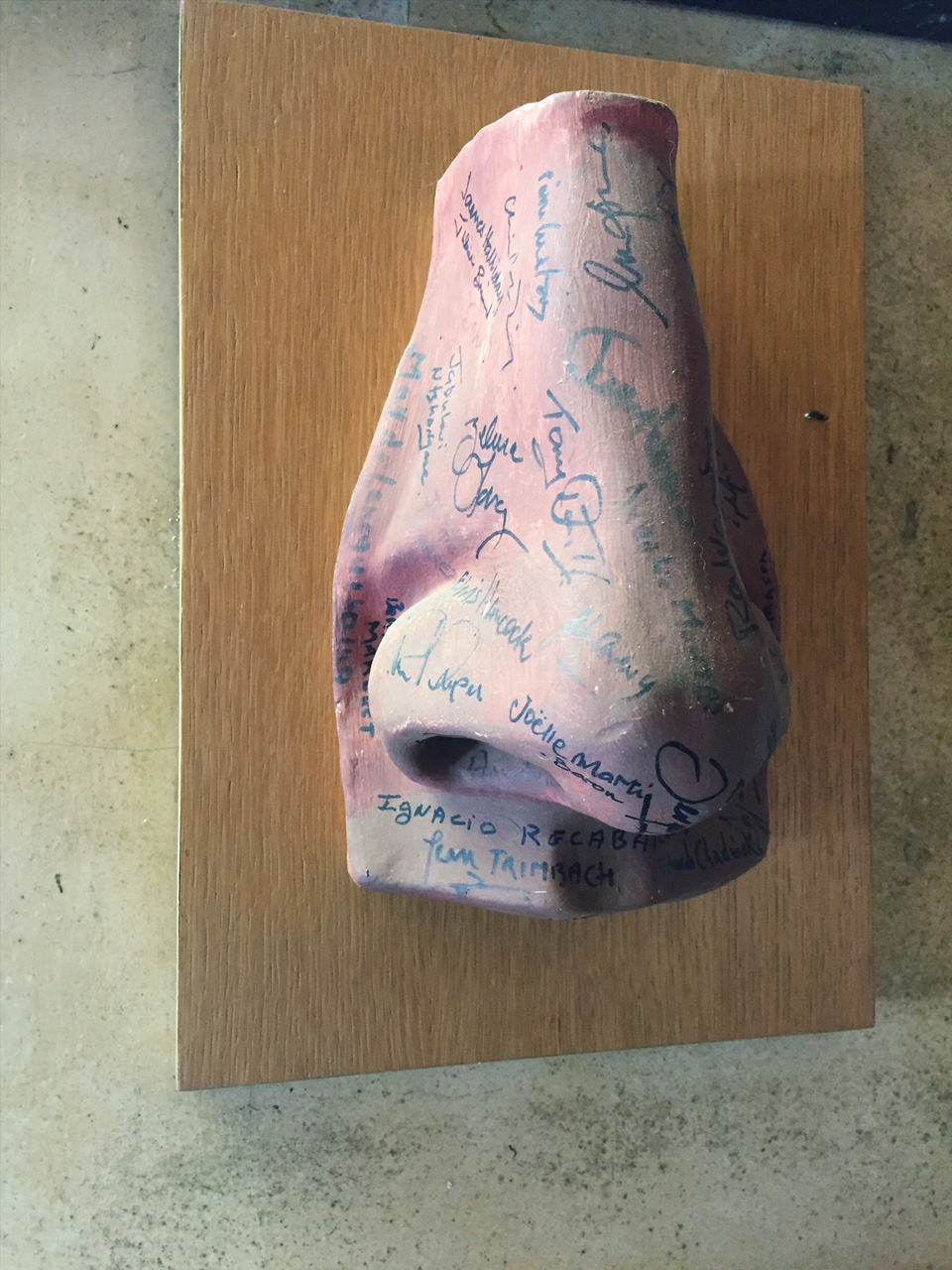
If there’s one thing everybody knows about Dave, he always has some idea simmering away. It’s almost as if he was born on a goldmine.
Books by David Hughes
Living with wine
300 Great South African Wines
South African Wine Buyers Guide (9 editions)
Winelands of the Cape
Visiting Wine Routes
Enjoy Wine (Co-author: Dave Biggs), 1990
The Complete Book of South African Wine (Co authors: Phyllis Hands and John Kench), Struik Publishers, 1992
Hughes on Booze, 1997
Wines and Brandies of the Cape of Good Hope (Co author: Phyllis Hands), Stephan Phillips, 1998
200 Best Value Wines in South Africa, 2001
New World Of Wine From The Cape Of Good Hope: The Definitive Guide To The South African Wine Industry (Co- authors: Phyllis Hands and Keith Phillips), Roundhouse Publishing, 2002
Brandies of the Cape, 2004
A Dictionary of South African Wine, 2004
Contributor to John Platter's South African Wine Guide since 1996
-Malu Lambert